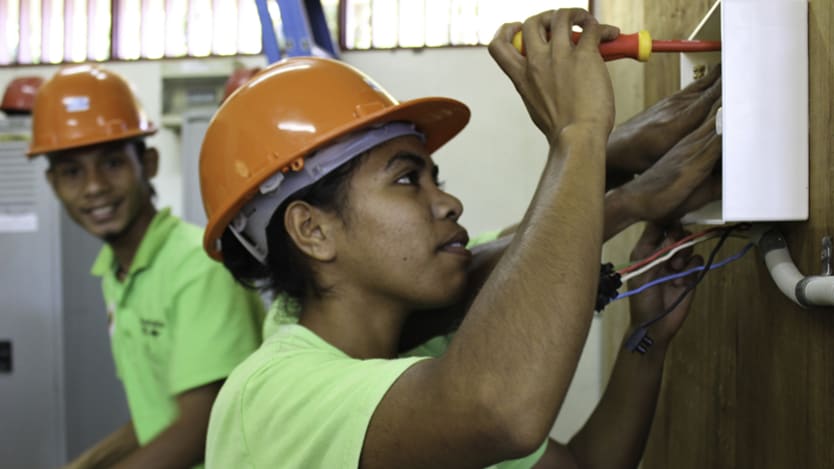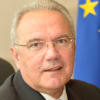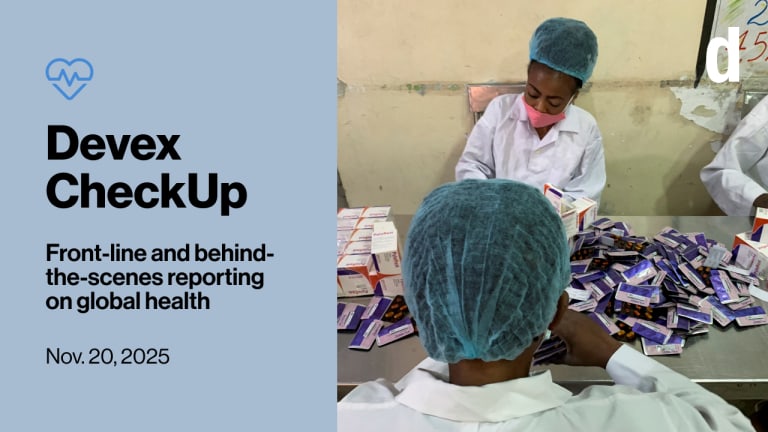
Gender equality and the empowerment of women and girls in development cooperation is my priority; a key objective where I want to be at the forefront — be it through diplomacy, political dialogue, project implementation in different sectors or cooperation with the civil society and the private sector.
We should all aspire to a world where the rights of girls and women are claimed, valued and respected by all. And where everyone is able to fulfil their potential and contribute to a more fair and just society.
That is why the European Commission is fully committed to breaking the vicious cycle of gender discrimination, by supporting partner countries to establish a more enabling environment for the fulfilment of girls’ and women’s rights and to achieve real and tangible improvements in gender equality.
After all, gender equality is not only an issue of human rights; women's empowerment is also about smart development and smart economics. Women’s participation in the economy is essential for sustainable development and economic growth and is intrinsically linked to the global goal of eradicating poverty.
2015 was a pivotal year for gender equality and the empowerment of girls and women. It was the year when a new global development framework was agreed upon at the global level, with gender equality firmly at the center of the Sustainable Development Goals, which were adopted in September at the United Nation’s Summit. It was also the year where we celebrated the 15th anniversary of U.N. Security Council Resolution 1325 on Women, Peace and Security, and the 20th anniversary of the Beijing Declaration and Platform for Action.
We have also seen important progress in a number of areas, including women's political participation and economic empowerment and the fight against gender violence. For instance, African countries such as Rwanda, Mozambique and South Africa achieved major progress in terms of the representation of women in parliament. In Rwanda there are now more women than men in parliament; in South Africa, the percentage of women reached nearly 45 percent; and in Mozambique, 40 percent.
Read our coverage of the EU Gender Action Plan:
► EU's new Gender Action Plan: More of the same?
► A first glimpse into the new EU Gender Action Plan
► Is EU gender practice minding the GAP?
In rural areas of the continent too, including in Ethiopia, Ghana and Rwanda, progress has been achieved to enable women to register land titles in their own names or jointly with husbands, and to support women’s organizing in cooperatives by providing them with vital resources to enhance their business productivity and sustainability.
The new EU Gender Action Plan for the period of 2016-2020 has just become applicable. It is not simply another action plan — it is a refreshed, revamped and ambitious political commitment that places gender at the heart of what EU does and, most importantly, it holds all of us to account on its delivery.
The new action plan is divided into four key transformative areas for girls and women. So what are we going to focus on?
First, on ensuring the physical and psychological integrity of girls and women: for example by protecting girls and women against violence and fighting harmful practices such as female genital mutilation and child marriage.
Secondly, we want to ensure that girls and women are empowered and that their social and economic rights are fulfilled: this includes, for example, improving access to quality education, and improving women’s control over resources.
Thirdly, we want to strengthen girls' and women’s voices and participation: for example by enhancing the role of women in peacebuilding and by supporting governments to develop ways to increase girls' and women’s participation in political life.
Finally, we're moving towards a shift in the Commission and the European External Action Service’s institutional culture towards one that more systematically supports, tracks and measures gender equality.
I have fond recollection of Plan International's Girls Voices initiative that I took part in last autumn. I was delighted to get the opportunity to meet an inspiring young woman from Senegal, 23-year-old Aida. Aida was one of the young girls who “took over” the EuropeAid Facebook and Twitter channels for the day, and talked to me about her life and the issues she — and girls like her all over the world — face on a daily basis.
In 2016, as the SDGs start to be implemented, we need to ensure that the gender equality promises made in the Agenda 2030 are achieved. Gender equality and the empowerment of women and girls is enshrined as a stand-alone goal (Goal 5), but more importantly, it runs as a thread throughout all the other goals.
This is how it should be — we cannot achieve sustainable development by 2030 if half of the world’s population is left behind. For my part, I'll be doing all I can to ensure that girls like Aida are at the heart of the SDGs and that in 2030, when they run out, we have a fair, equal and just society where women and girls have the voice and rights they deserve.
This article was written for Girls’ Voices as part of Plan International’s Because I am a Girl, a global movement to transform power relations so that girls everywhere learn, lead, decide and thrive in a world that values girls, promotes their rights and ends injustice.
Join the Devex community and access more in-depth analysis, breaking news and business advice — and a host of other services — on international development, humanitarian aid and global health.








